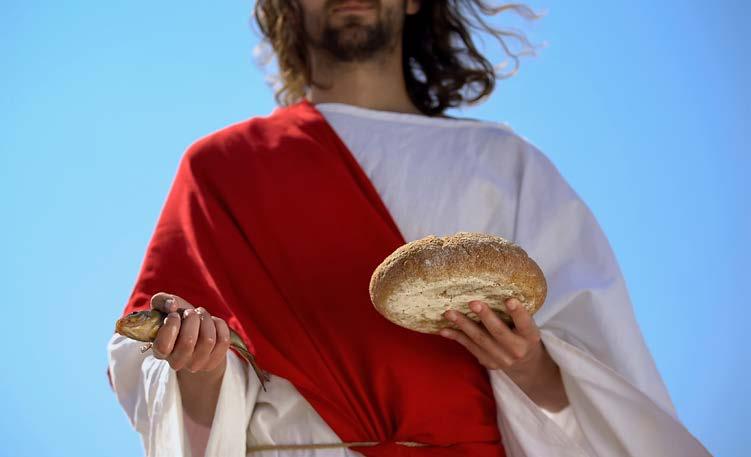
3 minute read
The Christ We Need
Gò0dNews for Life
The Christ We Need
Advertisement
by Matt Jensen
“Jesus then took the loaves, and when he had given thanks, he distributed them to those who were seated; so also the fish, as much as they wanted. And when they had eaten their fill, he told his disciples, ‘Gather up the leftover fragments that nothing may be lost’” (John 6:11-12).
This passage comes to the heart of Jesus’ feeding of the five thousand. I will not keep you waiting—this miracle shows us the God who abundantly provides. But we need to be clear on what He has promised to provide, which is seen in this miracle.
Misunderstanding God’s provision has led many to serious doubts or worse: apostasy.
Does God provide health, wealth, and happiness? Of course, He does, “every good gift and every perfect gift is from above” (James 1:17). Jesus laid the test to Philip, “Where are we to buy bread, so that these people may eat?” “We could work our fingers to the bone most of the year,” Philip basically retorts, “and not be able to provide even a bite for everyone!” (John 6:5-7). Andrew’s answer is not much better (John 6:8-9). Jesus—the Good Shepherd—leads the people into green pastures (John 6:10; cf. Psalm 23) and provides so much food that there were twelve baskets of leftovers after everyone had eaten their fill.
But does God promise to provide health, wealth, and happiness, or is Jesus making a deeper statement? Notice this event is taking place during the Passover festival (John 6:4 cf., Exodus 12-13). John wants to keep “the Lamb of God who takes away the sin of the world” (John 1:29) ever before our eyes. During the Passover, Israel’s firstborn sons were spared, but in the Passover, the only begotten Son of God was slain. During the first Passover, blood was applied to the door, but in the Passover, Christ is the blood-soaked door (John 10:7, 9). During the Passover, Israel was safely tucked inside their houses, but in the Passover, Jesus faced the cross outside. Unleavened bread sustained Israel after the Passover, and in the Passover Jesus is the “bread of life” (John 6:35). It is Christ, not bread, that is the significance of this miracle. To miss this point is to miss heaven! Jesus exposes the hearts of those who were seeking Him “because they ate their fill of the loaves,” and commands, “Do not work for the food that perishes, but for the food that endures to eternal life” (John 6:27). In other words, don’t get caught in the cares of this world, forgetting the world to come. “I am the bread of Life,” Jesus says, “whoever comes to me shall not hunger, and whoever believes in me shall never thirst” (John 6:35). Christ himself is what God has promised to give! Christ as true man and yet true God (John 1:1-3, 14). Christ instructing His ignorant people (Hebrews 1:1-3). Christ our wisdom (1 Corinthians 1:30). Christ our protector and safety (John 10). Christ our Passover Lamb, who takes away our sin (1 Corinthians 5:7, John 1:29). Christ our righteousness (2 Corinthians 5:21). Christ our life (Colossians 3:1-4)! He must increase and we must decrease (John 3:30).
We must thank God for the abundance of bread that perishes (i.e., health, wealth, and happiness), but don’t lose sight of the bread that endures to eternal life. Keep Christ ever before the hungry eyes of your soul! Let us thank God for the “bread of life.”
About The Author Matt Jensen is a missionary from Reformation Baptist Church in Dalton, Georgia. He and his wife, Danielle, are preparing to move to Thailand soon with their son, Judah. They are also anticipating the birth of another son, Gabriel.











